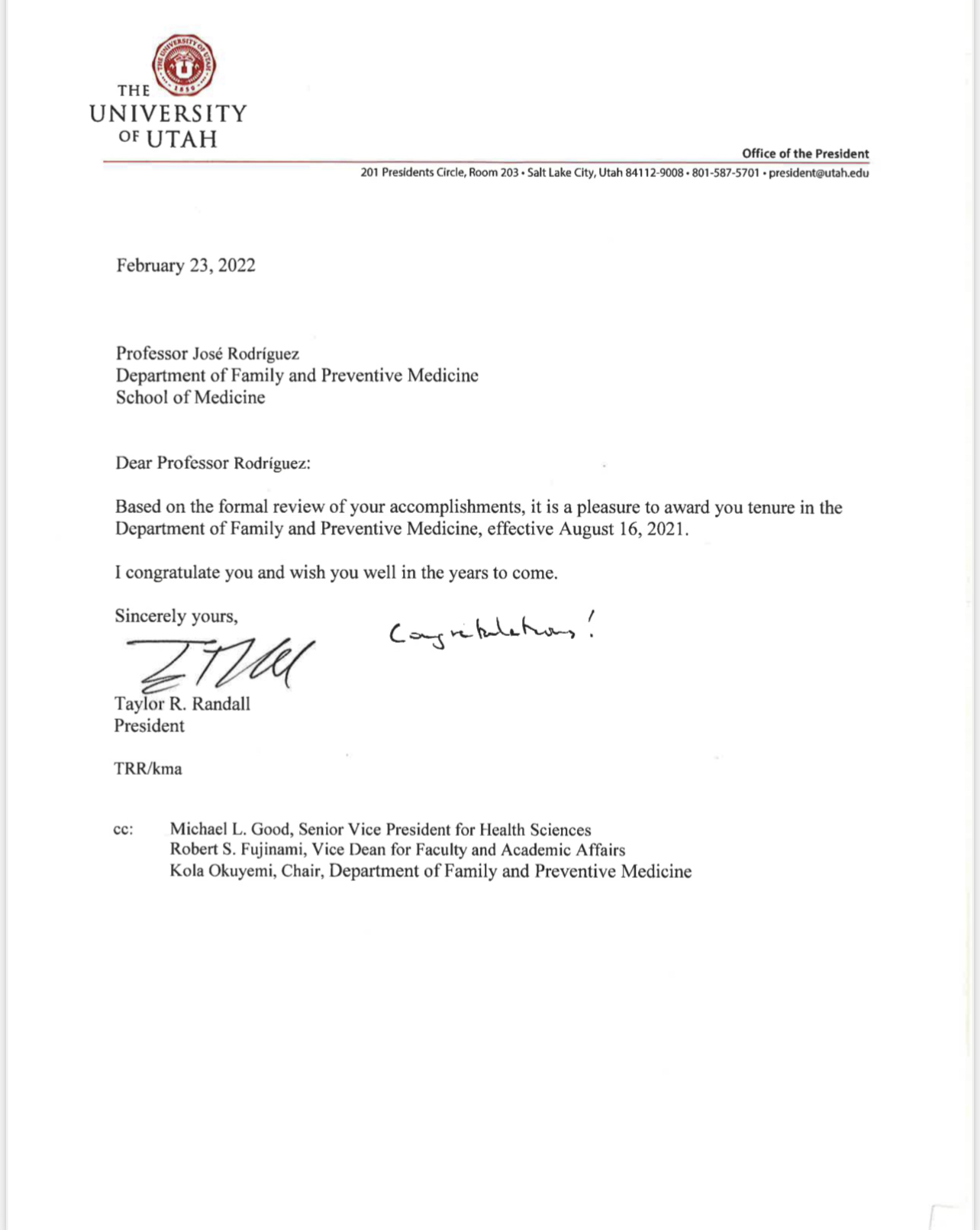 Last month, I received a letter from President Randall that was the culmination of decades of work and perseverance. It started out, “Dear Professor Rodríguez, Based on the formal review of your accomplishments, it is a pleasure to award you tenure in the Department of Family and Preventive Medicine, effective August 16, 2021…”
Last month, I received a letter from President Randall that was the culmination of decades of work and perseverance. It started out, “Dear Professor Rodríguez, Based on the formal review of your accomplishments, it is a pleasure to award you tenure in the Department of Family and Preventive Medicine, effective August 16, 2021…”
I was delighted and overcome with emotion, as I had been working on tenure at many institutions, and for various reasons could not find a way to obtain it. What I did not realize was how exclusive a club this really is.
Here at University of Utah Health, we have 2350 faculty, and 496 (21%) are tenured. This means that most of us are on the “other” tracks, the clinical track being the largest of those. On further investigation, we learned that of those 496 tenured faculty, there are 18 (3.6%) that identify as being part of an underrepresented in medicine race/ethnicity group (URiM), most of whom identify as Latinx (Hispanic or Latino). This low percentage is consistent with national data, as URiM faculty are poorly represented in the associate and full professor ranks, with even fewer on the tenure track.
According to recent research, URiM faculty have 17 % lower odds (OR 0.83, 99.5%CI 0.76–0.87) of being in tenured or tenure- earning tracks compared to non-URiM faculty. When looking at the intersection of binary gender and race, URiM women have 31% lower odds (OR 0.69, 99.5% CI 0.56–0.86) of being tenured or in tenure-earning tracks and URiM men have 29% lower odds (OR 0.71, 99.5% CI 0.60–0.84). Turns out we still have a long way to go...
I am overjoyed that I work at an institution that provides multiple pathways to tenure, and I feel validated and valued by my colleagues and leaders because of this award of tenure. I am not alone in this feeling, as nationally “tenure is associated with leadership, higher salaries, and comfort in the work environment.” Tenure is a potent tool for belonging. I hope that as we become better in our equity, diversity and inclusion practices, we can find ways to create belonging for all employees and students in the same way that tenure creates belonging for those who obtain it.